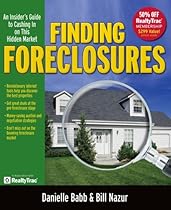 Selling your home in a slow market poses special challenges. You need these above- and-beyond marketing techniques to get your home sold now, before the season rush begins.
Selling your home in a slow market poses special challenges. You need these above- and-beyond marketing techniques to get your home sold now, before the season rush begins.
by Broderick Perkins
© 2008 DeadlineNews.Com![]()
Unauthorized use of this story is a copyright violation -- a federal crime
Deadline Newsroom - Up market. Down market. It doesn't matter. Spring showers typically bring a flood of spring sellers and you need to get your home ready to beat the rush.
Unless you are somehow endowed with the level of professional home marketing experience necessary in the current market, jump start your home selling effort by hiring a licensed real estate agent or broker with lots of experience in your local market.
He or she can help you quickly design a marketing strategy tailored lift your listing heads above the crowd.
• Start by cleaning house. If you can't or don't want the job, hire a round of service workers to give your home a thorough cleaning so you can see the clutter you need to remove. Don't forget the garage, attic and basement. Replace stained carpets, drapes, throws, quilts and comforters. Redo floors and window covers slather on a new coat of paint.
• Improve your home's look and feel. Home improvements completed before a sale should only include changes that give your home a more contemporary feel. Say, new major appliances, but only to replace old inefficient models. Avoid major kitchen and bath remodeling jobs, renovations and additions. Instead, give the buyer a cash concession for his or her own personalized improvements completed after escrow closes.
Likewise, spend time on curb appeal, sprucing up outside and manicuring the landscaping. Make that first impression one of a contemporary home ready to inhabit.
Back inside, further ready your home with a technique called "staging," the practice of nipping and tucking, furnishing and accessorizing, buffing and polishing until the place looks like a model home. Hiring a professional for the work isn't a bad idea.
• Make sure the price is right. Price your home beginning with an appraisal by a licensed appraiser or what's called "comparable market analysis" of several or more homes. The more the better. A comparable market analysis considers the price of other homes (as many as possible) that are as much like yours as possible. Obtain comparables from the inventory of recently closed sales as well as homes on the market. A real estate agent who has access to the multiple listing service (MLS) is best suited for the task.
• Offer concessions. Pay closing costs, park a big screen HD TV in the living room, buy a home inspection or home warranty, make some repairs. If you've priced the home right, a concession here or there can close the deal.
• Market to the masses. Certainly, use traditional print classifieds, print ads, conventional signage and fliers, an open house, and listing with the local MLS. But don't overlook additional online marketing efforts -- a Web site, Web page or blog dedicated to your listing turns it into a 24-hour open house. The Age of Information demands you use the Net to provide as much information as possible about the home and neighborhood.
• Consider becoming a lender. In a down market, financing is tight. Even creditworthy borrowers get rejected because of rigid underwriting. If you can successfully finance the deal you could get your home sold sooner and enjoy a financial return for the effort. Legal help or a professional proficient in seller financing contracts is paramount to help you learn more and determine if you can handle a lender's risk.
• Go to auction. Not only for foreclosures, auctions can attract pre-approved buyers and, if successful, an auction can reduce the carrying costs associated with a home languishing unsold for months. Again, professional help is key. You need a recognized auction house and a real estate agent, attorney or other professional with auction savvy.
• Use a sale of last resort. If you are down on your luck, have missed payments and want to avoid bankruptcy or foreclosure, a short sale is an option with a new tax break. In a short sale, the lender forgives a portion of the outstanding balance on the home, typically, if you have a buyer ready to go. The portion of the debt the lender writes off was once considered income and taxed as such. For qualified taxpayers, the Mortgage Forgiveness Debt Relief Act of 2007, effective through 2010, removes the expense of federal taxes on forgiven debt. Visit IRS.gov for more information.
• Buy now! Beat the spring rush!
• Remodel now! Beat the spring rush!
© 2008 DeadlineNews.Com
Advertise on DeadlineNews.Com
Shop DeadlineNews.Com
Get news that really hits home for your Web site or blog from DeadlineNews.Com.
Broderick Perkins, an award-winning consumer journalist, parlayed 30 years of old-school journalism into a digital real estate news service, the San Jose, CA-based DeadlineNews Group -- DeadlineNews.Com, a real estate news and consulting service and Web site and the Deadline Newsroom, DeadlineNews.Com's news back shop. Perkins is also a National Real Estate Examiner. All the news that really hits home from three locations -- that's location, location, location!
DeadlineNews.Com's Editorial Content Is Intellectual Property • Unauthorized Use Is A Federal Crime
Read more!











